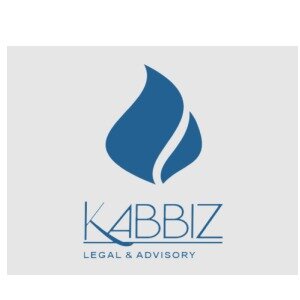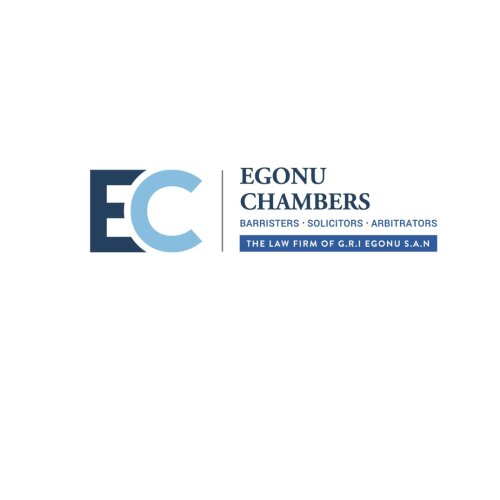Best Communications & Media Law Lawyers in Onitsha
Share your needs with us, get contacted by law firms.
Free. Takes 2 min.
List of the best lawyers in Onitsha, Nigeria
About Communications & Media Law in Onitsha, Nigeria
Communications & Media Law in Onitsha, Nigeria governs the legal aspects related to the dissemination of information through various media platforms, including print, broadcast, and digital media. It encompasses regulations that protect freedom of speech while also balancing the rights and responsibilities of media organizations and individuals.
Why You May Need a Lawyer
There are several situations where you may require legal help in Communications & Media Law in Onitsha:
- If you are a journalist or media organization facing issues related to libel, defamation, or invasion of privacy.
- If you need guidance on licensing requirements and compliance for starting a media business.
- If you face censorship or government restrictions on your freedom of speech or the freedom of the press.
- If you are involved in a dispute regarding intellectual property rights, such as copyright infringement or plagiarism.
- If you need assistance understanding and navigating the complex legal landscape surrounding social media and online content.
Local Laws Overview
In Onitsha, Nigeria, several key aspects of local laws are particularly relevant to Communications & Media Law:
- The Nigerian Constitution guarantees freedom of speech and the press, but it also allows for restrictions in the interest of public order, national security, or morals.
- The National Broadcasting Commission (NBC) regulates and licenses broadcast media in Nigeria, ensuring compliance with content standards and ethics.
- The Nigerian Copyright Commission (NCC) protects original works and ensures fair use of intellectual property in media.
- The Nigerian Press Council (NPC) oversees the professional conduct of print media and resolves complaints against newspapers and journalists.
Frequently Asked Questions
Q: Can I face legal consequences for criticizing public figures or institutions in my media content?
A: While freedom of speech is protected, it is essential to exercise it responsibly. False statements with malicious intent can lead to defamation claims. Ensure your criticisms are based on facts and supported by evidence.
Q: How can I protect my original content from being copied or plagiarized?
A: Copyright laws in Nigeria automatically protect original works. However, it is recommended to mark your content with the copyright symbol (©), your name, and the year of creation. In case of infringement, consult a lawyer to enforce your rights.
Q: What legal restrictions apply to online content creation and social media usage?
A: Online content creators and social media users must comply with defamation, intellectual property, and obscenity laws. Be cautious with the information you share, respect other people's rights, and avoid spreading false or harmful content.
Q: How can I ensure compliance while starting a media business in Onitsha?
A: Consult a lawyer familiar with Communications & Media Law. They will guide you on licensing requirements, content regulations, employment contracts, and other legal aspects relevant to your specific media business.
Q: How can I file a complaint against media content that violates ethical standards?
A: If you believe a media organization or individual has breached ethical standards, you can file a complaint with the appropriate regulatory bodies such as the Nigerian Broadcasting Commission (NBC) for broadcast media or the Nigerian Press Council (NPC) for print media.
Additional Resources
For further assistance and information, these resources related to Communications & Media Law can be helpful:
- National Broadcasting Commission (NBC): www.nbc.gov.ng
- Nigerian Copyright Commission (NCC): www.copyright.gov.ng
- Nigerian Press Council (NPC): www.presscouncil.gov.ng
Next Steps
If you need legal assistance in Communications & Media Law in Onitsha, it is advisable to:
- Research and gather information specific to your case or concern.
- Identify legal professionals or law firms with expertise in Communications & Media Law.
- Schedule consultations to discuss your situation and evaluate the potential solution.
- Select the most suitable lawyer to represent your interests and proceed accordingly.
- Maintain open communication with your lawyer, provide all necessary documents and cooperate throughout the legal process.
Lawzana helps you find the best lawyers and law firms in Onitsha through a curated and pre-screened list of qualified legal professionals. Our platform offers rankings and detailed profiles of attorneys and law firms, allowing you to compare based on practice areas, including Communications & Media Law, experience, and client feedback.
Each profile includes a description of the firm's areas of practice, client reviews, team members and partners, year of establishment, spoken languages, office locations, contact information, social media presence, and any published articles or resources. Most firms on our platform speak English and are experienced in both local and international legal matters.
Get a quote from top-rated law firms in Onitsha, Nigeria — quickly, securely, and without unnecessary hassle.
Disclaimer:
The information provided on this page is for general informational purposes only and does not constitute legal advice. While we strive to ensure the accuracy and relevance of the content, legal information may change over time, and interpretations of the law can vary. You should always consult with a qualified legal professional for advice specific to your situation.
We disclaim all liability for actions taken or not taken based on the content of this page. If you believe any information is incorrect or outdated, please contact us, and we will review and update it where appropriate.










